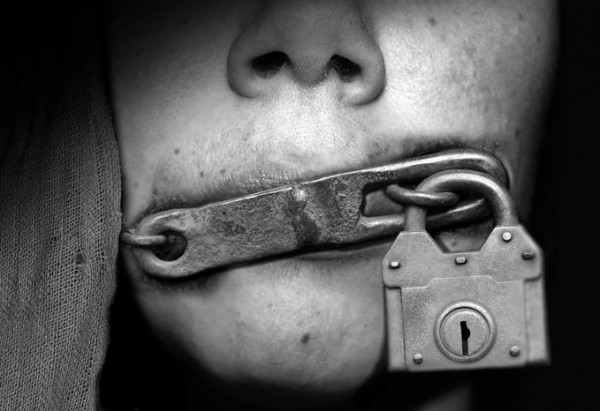Anti-Occupy Law: Freedom of Speech, Just Watch What You Say


When Congress passed the Orwellian bill HR 437 in May, it was dubbed the Anti-Occupy law. It criminalizes dissent and protest in and around federal buildings. What's worse, the federal government doesn’t have to tell anyone when an area becomes suddenly protected but can arrest people anyway for violating rules they had no way of knowing were in effect.
Every Democrat voted for the bill. Only three members of Congress voted against it, Rep. Ron Paul and two other Republicans.
"Last year’s “Occupy movement” scared the government. On March 8, President Obama signed a law that makes protesting more difficult and more criminal," wrote Paul Samakow in a recent Washington Times op-ed. "The law is titled the Federal Restricted Buildings and Grounds Improvement Act, and it passed unanimously in the Senate and with only three “no” votes in the House. It was called the "Trespass Bill" by Congress and the "anti-Occupy law" by everyone else who commented."
The Washington Times is a conservative paper. Yet they clearly believe that defending freedom of speech and assembly is important, as does this left-wing populist. This is something many people across the spectrum agree with. Our constitutionally-protected freedoms are the bedrock of this country. But they are under attack.
Smakow makes the important point that the bill was rushed through in reaction to Occupy, which is the first movement in decades that point-blank says the primary problem in the country is the stranglehold Wall Street has on the government. Why did Congress reacted so harshly? Was light being shed in areas they didn't wish any light to be?
The law “improves” public grounds by forcing people - protestors - elsewhere. It amends an older law that made it a federal crime to "willfully and knowingly" enter a restricted space. Now you will be found guilty of this offense if you simply "knowingly" enter a restricted area, even if you did not know it was illegal to do so. The Department of Homeland Security can designate an event as one of “national significance,” making protests or demonstrations near the event illegal.
That’s right. You can be arrested for being in areas that you had no idea you weren’t allowed to be in, on the whim of a government official.
The law makes it punishable by up to ten years in jail to protest anywhere the Secret Service “is or will be temporarily visiting,” or anywhere they might be guarding someone.
How can a citizen know where the Secret Service is? It’s not like they make their locations well known.
Say what we feel, yell out what's real Even though it may not bring mass appeal Your opinion is yours, my opinion is mine If you don't like what I'm sayin'? Fine But don't close it, always keep an open mind A man who fails to listen is blind We only got one right left in the world today Let me have it or throw The Constitution away-- Ice-T Freedom of Speech" 1989
Imagine that, a rapper and a columnist for a conservative newspaper agree. We need to protect freedom of speech and freedom of assembly.



